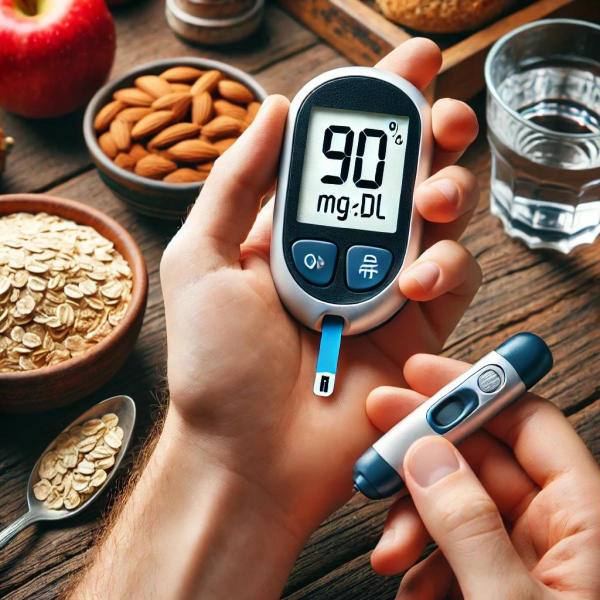Normal Blood Sugar Levels for Adults
Understanding Normal Blood Sugar Levels for Adults: A Comprehensive Guide

Introduction
Are you or a loved one looking to understand the importance of maintaining normal blood sugar levels? Managing your blood sugar is crucial for maintaining your overall health and well-being, especially for individuals at risk of diabetes or those already diagnosed with it. At Apollo Sugar Clinics, we specialize in providing comprehensive care and effective treatments to help you achieve and maintain normal blood sugar levels, ensuring a healthy, balanced life.

Understanding Normal Blood Sugar Levels
What Are Normal Blood Sugar Levels?
Blood sugar levels refer to the amount of glucose present in your blood at any given time. Glucose is a type of sugar that comes from the foods you eat, and it’s your body’s primary source of energy. For adults, normal blood sugar levels can vary depending on various factors, including the time of day, food intake, and activity levels. Typically, normal blood sugar levels are measured in milligrams per deciliter (mg/dL).
- Fasting Blood Sugar (before eating): 70-99 mg/dL
- Postprandial Blood Sugar (2 hours after eating): Less than 140 mg/dL
- Random Blood Sugar Level: Less than 140 mg/dL
- HbA1c (average blood sugar over 2-3 months): Less than 5.7%
Maintaining these levels helps your body function effectively and reduces the risk of developing complications associated with abnormal blood sugar levels.
Why Are Normal Blood Sugar Levels Important?
Maintaining normal blood sugar levels is essential because it:
- Prevents Health Complications: High blood sugar levels can lead to complications such as cardiovascular diseases, nerve damage, kidney issues, and vision problems.
- Enhances Energy Levels: Stable blood sugar levels help maintain consistent energy levels throughout the day, improving overall productivity and mood.
- Supports Cognitive Function: Your brain requires glucose to function effectively. Stable blood sugar levels support cognitive processes and reduce the risk of cognitive decline.
- Promotes Healing and Recovery: Proper blood sugar management aids in faster recovery and healing from illnesses or injuries.
Symptoms of Abnormal Blood Sugar Levels
Recognizing symptoms of abnormal blood sugar levels can help in early detection and management. Symptoms vary depending on whether blood sugar levels are too high (hyperglycemia) or too low (hypoglycemia).
Symptoms of High Blood Sugar (Hyperglycemia)
- Frequent Urination: Increased glucose levels cause the kidneys to expel more water, leading to frequent urination.
- Increased Thirst: Frequent urination can cause dehydration, leading to excessive thirst.
- Fatigue: High blood sugar levels can make you feel constantly tired or weak.
- Blurred Vision: Excess sugar can affect your eyes, causing blurred vision.
- Slow Healing of Wounds: High glucose levels can impair blood flow and affect the healing process.
Symptoms of Low Blood Sugar (Hypoglycemia)
- Shakiness: Low blood sugar can cause shakiness or trembling.
- Sweating: An abnormal drop in blood sugar often triggers sweating.
- Hunger: Feeling suddenly hungry can be a sign of low blood sugar.
- Dizziness: Low blood sugar can cause lightheadedness or dizziness.
- Confusion or Irritability: You may experience difficulty concentrating or feel unusually irritable.
Blood Sugar Level Management
Immediate Treatments for Abnormal Blood Sugar Levels
If you experience symptoms of abnormal blood sugar levels, immediate action is required to manage them:
For High Blood Sugar:
- Hydration: Drink plenty of water to help flush out excess sugar from the body.
- Physical Activity: Engage in light exercise to help lower blood glucose levels.
- Medication Adjustment: Consult your healthcare provider for appropriate medication adjustments.
For Low Blood Sugar:
- Quick Carbohydrate Intake: Consume 15-20 grams of fast-acting carbohydrates, such as glucose tablets, juice, or candies.
- Monitor Levels: Check your blood sugar levels regularly to ensure they are within the normal range.
- Eat a Balanced Meal: After initial treatment, have a balanced meal to stabilize blood sugar levels.
Long-Term Management
Long-term management of blood sugar levels involves understanding the underlying causes and making necessary lifestyle adjustments:
- Healthy Diet: Incorporate whole grains, lean proteins, fruits, and vegetables into your diet to maintain steady blood sugar levels.
- Regular Exercise: Engage in regular physical activity, such as walking, jogging, or yoga, to improve insulin sensitivity and blood sugar control.
- Regular Monitoring: Keep track of your blood sugar levels using a glucometer and maintain a log to share with your healthcare provider.
- Medication Adherence: Follow your healthcare provider’s recommendations regarding medication and insulin therapy if prescribed.
- Stress Management: Practice stress-reducing techniques like meditation, deep breathing, or hobbies to avoid stress-induced blood sugar spikes.
Our Approach to Blood Sugar Management at Apollo Sugar Clinics
Comprehensive Assessment
During your initial visit, our experienced healthcare professionals will conduct a thorough assessment to understand your medical history, current health status, and specific needs. This may include blood tests, physical examinations, and a review of your lifestyle habits to identify factors affecting your blood sugar levels.
Personalized Treatment Plan
Based on your assessment, we will develop a personalized treatment plan tailored to your unique needs. This plan may include dietary recommendations, exercise plans, medication, or insulin therapy to help you maintain normal blood sugar levels effectively.
Ongoing Support and Monitoring
We provide continuous support and monitoring to ensure your treatment plan is effective. Regular follow-up appointments and consultations help us track your progress, make necessary adjustments, and provide guidance to manage your condition effectively.
Why Choose Apollo Sugar Clinics?
- Expertise and Experience: Our team of skilled healthcare professionals specializes in diabetes and blood sugar management, ensuring you receive the best care possible.
- Patient-Centered Care: Your comfort and well-being are our top priorities. We strive to provide personalized care that addresses your specific needs and concerns.
- Advanced Technology: We use the latest medical technology and equipment to provide accurate diagnoses and effective treatments.
- Comprehensive Services: In addition to blood sugar management, we offer a wide range of diabetes care services to support your overall health.

BOOK YOUR APPOINTMENT TODAY!
If you or a loved one needs help managing blood sugar levels, schedule a consultation with us at Apollo Sugar Clinics. Our friendly and knowledgeable staff is here to help you achieve stable blood sugar levels and improve your quality of life.
F.A.Q

- Normal blood sugar levels for adults typically range from 70-99 mg/dL when fasting (after at least 8 hours without eating) and less than 140 mg/dL two hours after eating. The HbA1c level, which reflects average blood sugar over the past 2-3 months, should be less than 5.7%.
- If you have diabetes or are at risk, it’s recommended to check your blood sugar levels multiple times a day, such as before meals, two hours after meals, and at bedtime. Consult with your healthcare provider for personalized advice.
- High blood sugar levels, or hyperglycemia, can be caused by consuming high-sugar foods, lack of exercise, stress, illness, or insufficient insulin or diabetes medication. Chronic high blood sugar can be a sign of diabetes.
- Symptoms of high blood sugar include frequent urination, increased thirst, fatigue, blurred vision, and slow healing of cuts and bruises.
- Symptoms of low blood sugar, or hypoglycemia, include shakiness, sweating, dizziness, confusion, irritability, hunger, and a rapid heartbeat.
- You can lower blood sugar levels naturally by engaging in regular physical activity, following a balanced diet with low-sugar foods, staying hydrated, managing stress, and getting adequate sleep.
